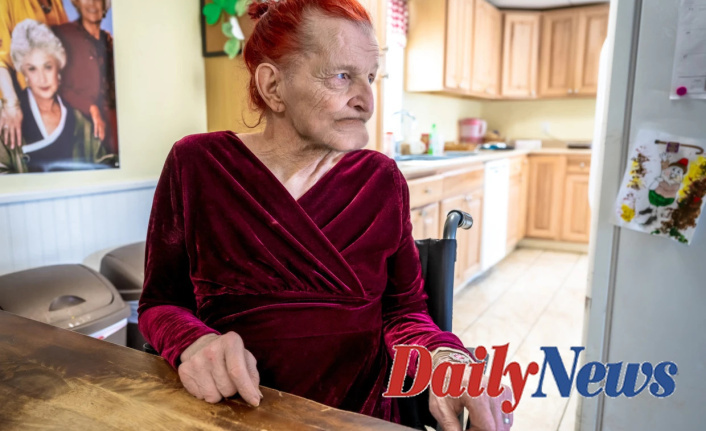The Maine Human Rights Commission determined that a 79-year old woman can claim that an assisted-living facility in Maine discriminated against her because she is transgender.
With Monday's 3-2 vote, Sunrise Assisted Living in Jonesport could be sued for violating state discrimination law. Marie King was denied residency.
King's lawyers claim that the case is already legal history, as it was the first discrimination complaint against a long-term care facility by a transgender person.
"This type of discrimination against transgender individuals needing long-term healthcare is far from an isolated incident but it is also clearly illegal," Karen L. Loewy (senior counsel at Lambda Legal), said.
Nearly half of the U.S. states, Maine included, have laws that explicitly prohibit discrimination based upon gender identity in housing and public accommodations. These legal categories also apply to homes caring elderly people.
A California appellate court ruled that a section of a 2017 state statute made it a misdemeanor to nursing home staff to intentionally and repeatedly misgender residents . The law also made it illegal for them to use their former names, which is known in trans communities as "deadnaming." California's Supreme Court is currently reviewing the decision and could reverse it.
The California law has stood at the vanguard of a nascent movement in Democratic-controlled states to establish explicit legal protections against discrimination for LGBTQ seniors in nursing homes.
A married couple of lesbians settled a 2018 lawsuit in which they accused St. Louis retirement facilities of discrimination. They refused their request for residency, as theirs was not heterosexual.
This settlement was made in the wake of a 2020 U.S. Supreme Court ruling, Bostock v. Clayton. It established nationwide protections for LGBTQ people against workplace discrimination.
The broad Equality Act that the House of Representatives passed in February 2021 224-206, largely on party lines, could be passed by the U.S. Senate and would further strengthen anti-discrimination protections to LGBTQ people across the country.
There are few long-term care homes specifically designed to accommodate the nation's 51 million LGBTQ senior. They have been popping up in the United States, however, in Philadelphia and San Diego.
According to the UCLA School of Law, approximately 0.5% of U.S. residents older than 65 identify themselves as transgender. This is approximately 217,000 people.
Trans seniors are more likely to need institutionalized care than their cisgender counterparts. This is because they have lower incomes, are in poorer health and have less ties to family members.
King was admitted to Pen Bay Medical Center Rockport, Maine in the spring 2021. A hospital social worker tried to place King in long-term care facilities, as her overall health was not good enough.
According to the October legal complaint to the state human rights commissioner, an administrator from Sunrise told the social worker at the beginning that there were no vacancies.
After King was discovered to be transgender by the administrator, King allegedly informed the social worker she had rejected her application as she didn't want to place her with an cisgender-woman friend.
Chris Erchull is a staff attorney at GLBTQ Legal Advocates & Defenders, a non-profit firm that represents King.
Erchull stated that the decision of the human rights commission "is a reminder for all assisted-living homes or other long-term care facilities to treat people with respect and compassion."
The commission will now try to resolve the dispute between King & Sunrise. If that fails, the commission could then sue Sunrise for damages.
King's lawyers also have the option to sue the commission independently.
John K. Hamer (the attorney for Sunrise) declined to comment.
King, who was contacted by her attorney in January stated via email that she hoped her case would "open doors to a greater understanding" of the needs transgender people.












